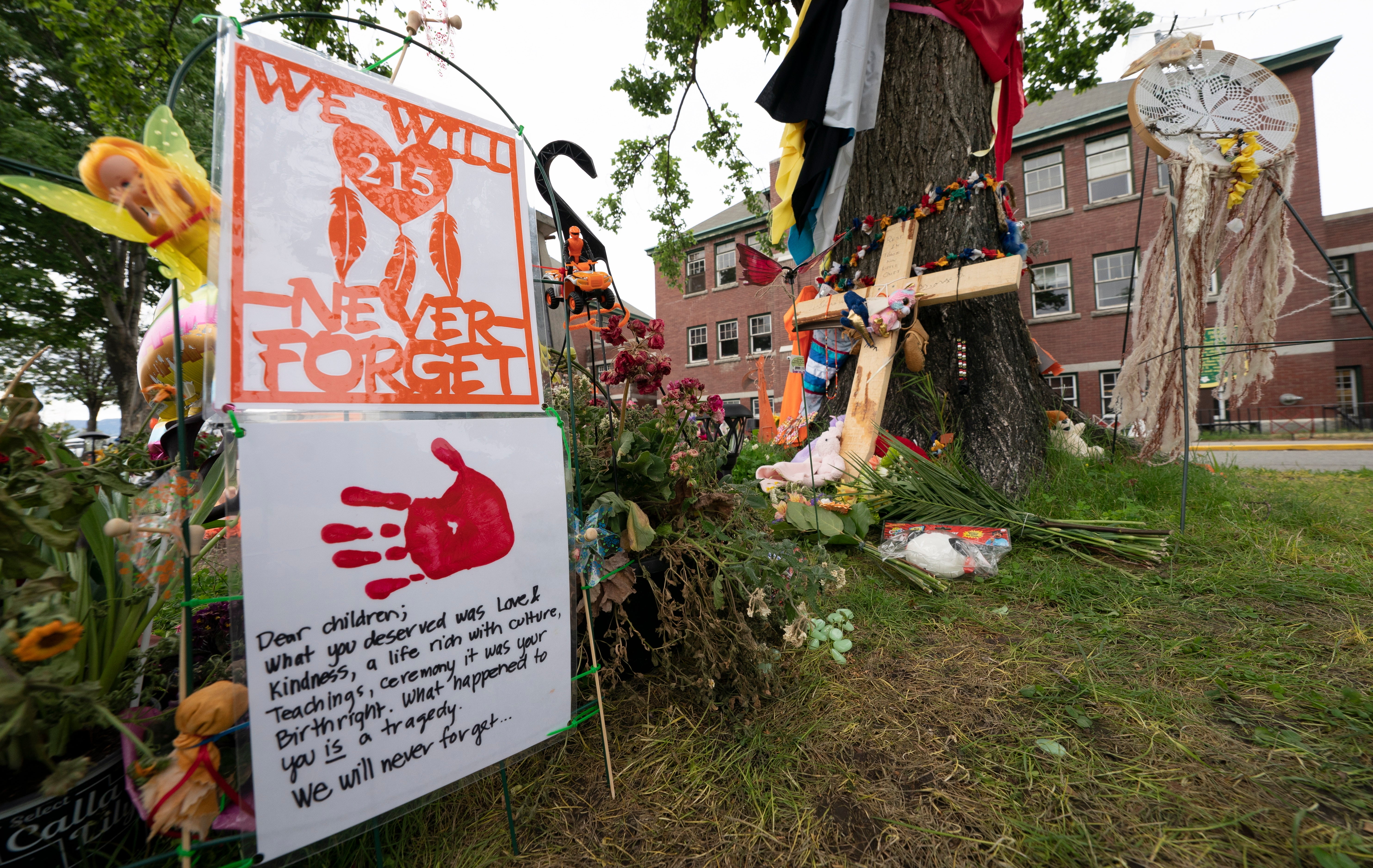Unmarked graves found at another Indigenous school in Canada
A First Nation in Canada says it has discovered hundreds of unmarked graves at the site of another former residential school for Indigenous children

Your support helps us to tell the story
From reproductive rights to climate change to Big Tech, The Independent is on the ground when the story is developing. Whether it's investigating the financials of Elon Musk's pro-Trump PAC or producing our latest documentary, 'The A Word', which shines a light on the American women fighting for reproductive rights, we know how important it is to parse out the facts from the messaging.
At such a critical moment in US history, we need reporters on the ground. Your donation allows us to keep sending journalists to speak to both sides of the story.
The Independent is trusted by Americans across the entire political spectrum. And unlike many other quality news outlets, we choose not to lock Americans out of our reporting and analysis with paywalls. We believe quality journalism should be available to everyone, paid for by those who can afford it.
Your support makes all the difference.A First Nation in southern Saskatchewan said Wednesday that it has discovered hundreds of unmarked graves at the site of another former residential school for Indigenous children.
A statement from the Cowessess First Nation and the Federation of Sovereign Indigenous First Nations which represents Saskatchewan’s First Nations, said that “the number of unmarked graves will be the most significantly substantial to date in Canada ”
Last month the remains of 215 children, some as young as 3 years old, were found buried on the site of what was once Canada’s largest Indigenous residential school near Kamloops, British Columbia
Cowessess Chief Cadmus Delorme and Chief Bobby Cameron of the federation planned to hold a news conference Thursday to provide more details about the new find at the Marieval Indian Residential School, which operated from 1899 to 1997 where Cowessess is now located, about 87 miles east of Regina, the capital of Saskatchewan.
From the 19th century until the 1970s, more than 150,000 First Nations children were required to attend state-funded Christian schools as part of a program to assimilate them into Canadian society. They were forced to convert to Christianity and not allowed to speak their native languages. Many were beaten and verbally abused, and up to 6,000 are said to have died.
The Canadian government apologized in Parliament in 2008 and admitted that physical and sexual abuse in the schools was rampant. Many students recall being beaten for speaking their native languages; they also lost touch with their parents and customs.
Indigenous leaders have cited that legacy of abuse and isolation as the root cause of epidemic rates of alcoholism and drug addiction on reservations.